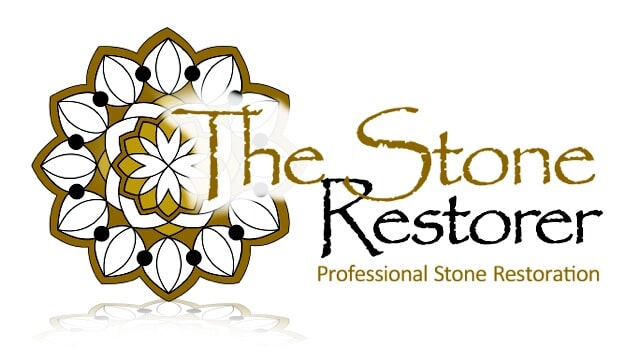Granite countertops epitomise durability and beauty, making them a favoured choice for kitchens in homes around Brisbane and the Gold Coast. Yet, despite their resilience, granite countertops are not impervious to damage from daily wear and tear, accidental impacts, or improper care.
Properly restoring these surfaces not only brings back their aesthetic appeal but also ensures their longevity. This guide aims to navigate the intricate process of granite restoration, providing you with professional tips to handle your valuable countertops with care.
Introduction To Granite
The allure of granite lies in its tough, polished surface that resists chips and scratches better than most other natural stones.
However, time and usage can diminish its splendour. Whether you’re preparing to sell your home or simply want to refresh your space, understanding how to correctly restore and maintain granite countertops is key to preserving their beauty and functionality.
1. Assess the Damage
Begin by thoroughly assessing the current state of your granite countertops. Identifying the specific types of damage will guide your restoration efforts effectively. Check for stains, scratches, etch marks (caused by acidic substances), and chips.
This initial examination is crucial as it helps you to apply the most appropriate restoration techniques without over-processing the stone, which can lead to further damage.
2. Choose the Right Cleaning Agents
The cleaning agents you select play a pivotal role in the success of your restoration efforts. Opt for pH-neutral solutions specifically formulated for natural stone.
These cleaners are gentle enough not to harm the granite’s sealant while effective at removing surface grime and preparing the stone for deeper treatment. Avoid vinegar, lemon juice, or other acidic cleaners as these can etch the granite and dull its finish.
3. Perform Deep Cleaning
Deep cleaning involves more than the daily wipe-down. For a thorough clean, use a soft brush or a microfiber cloth along with a recommended granite cleaner to lift and remove substances that have built up over time.
This step is crucial for clearing the way to examine any deeper damage and prepare the surface for repairs like filling chips or sanding away scratches.
4. Repair Cracks and Chips
Granite is susceptible to chipping, particularly around edges and sinks. To repair chips or small cracks, use a granite repair kit that includes colour-matched epoxy or resin.
The key is to apply the adhesive carefully and ensure it’s flush with the surface, preventing further debris accumulation or noticeable repairs that could detract from the stone’s natural beauty.
5. Sand and Refinish the Surface
If your granite countertop has suffered extensive scratching or has dulled from years of use, sanding may be necessary. Start with a low-grit diamond sanding pad and gently work over the scratches.
Be cautious not to remove too much surface material. Gradually increase the grit of the pad until the surface is smooth and the finish begins to shine again. This method can rejuvenate the countertop’s appearance dramatically when done correctly.
6. Seal the Granite
Once the surface is smooth and repairs have been made, it’s crucial to seal the granite. A high-quality sealant provides a barrier against stains and water penetration. Apply the sealant according to the manufacturer’s instructions and allow it to dry thoroughly.
Sealing helps protect the stone from future stains and reduces the frequency of deep cleanings needed.
7. Regular Maintenance
Maintaining restored granite countertops is simpler than many realise. Implement daily cleaning with appropriate products, use coasters and trivets to avoid stains and heat damage, and wipe up spills immediately to prevent penetration.
Regular care also includes periodic resealing of the stone, depending on the level of use and the manufacturer’s recommendations.
8. Avoid Harsh Chemicals
Keep your granite in top condition by avoiding harsh chemicals that can strip away sealants and etch the stone’s surface. Stick to cleaners specifically designated for granite or mild, pH-neutral soaps. Sticking to the correct cleaning agents will ensure the longevity and beauty of your countertops.
9. Consult with Professionals
For significant damage, complex repairs, or routine professional care, reach out to experts like The Stone Restorer Services.
Our specialists are equipped with the skills, tools, and products necessary to handle any aspect of granite restoration. Consulting with professionals can prevent costly mistakes and ensure that your countertops receive the highest standard of care.
10. Prevent Future Damage
Incorporate proactive measures to protect your granite countertops from future damage. Use cutting boards to prevent scratches, place hot pads under pots and pans, and educate all household members about the proper care practices. Small preventative actions can significantly extend the life and beauty of your granite surfaces.
Final Thoughts
Restoring and maintaining granite countertops demands attention to detail and a commitment to proper care practices. By following these guidelines, you can ensure that your granite remains a stunning and functional centrepiece in your home.
Get In Touch With The Stone Restorer
Are you looking to restore the natural beauty of your granite countertops in Brisbane or the Gold Coast? Get in touch with The Stone Restorer. Our expert team provides comprehensive solutions tailored to your specific needs, from minor touch-ups to complete refurbishments.
Give us a call today at 0414 469 301 or ask us for a fast free quote on your tile cleaning or restoration project.






